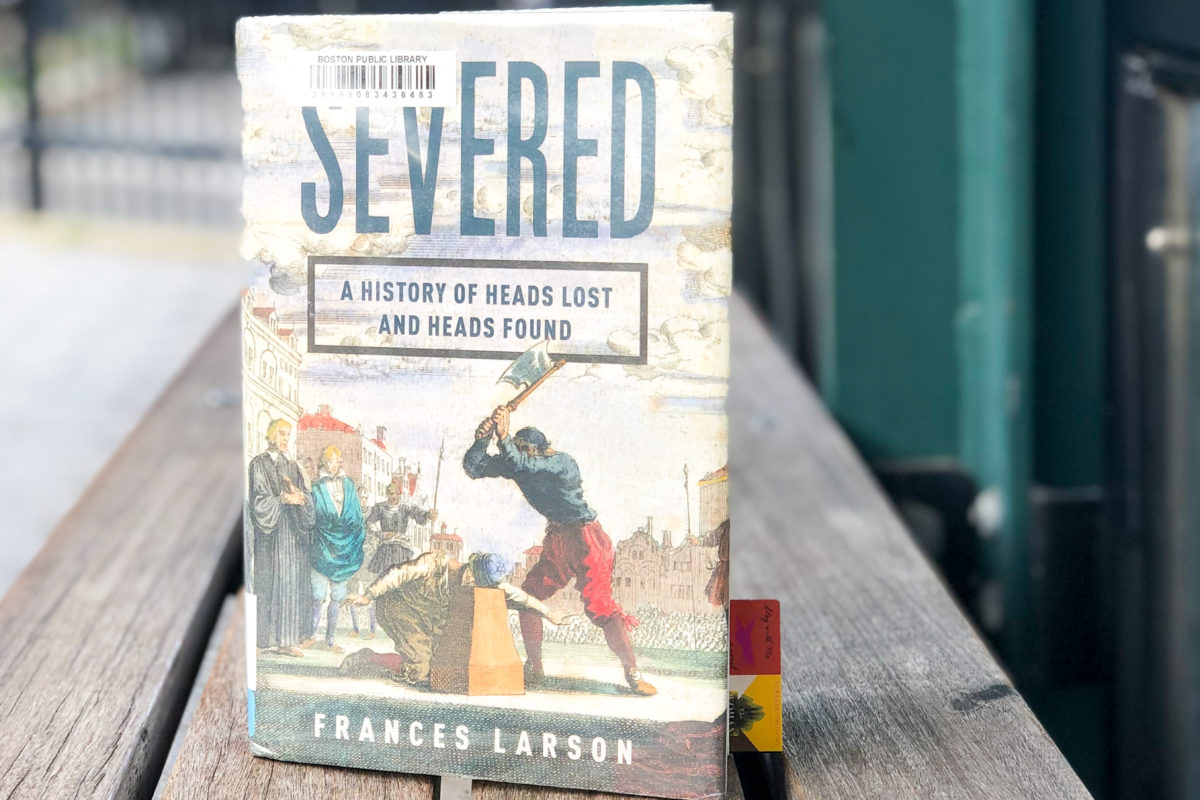
This month I read a bunch of micro-histories and a few abstract fiction pieces. Thank you Random House for gifting me these books, noted with a star!
At Home
Bill Bryson
This micro history dove into private life, so basically every aspect of life and domestic spaces. It was very interesting, but not for the faint of heart. Reading it made my think of Bryson sitting at the writing desk going ‘well I just HAVE to put this anecdote in as well.’ It’s all fascinating information but there’s about 400 pages of facts on facts on facts, so know what you’re in for!
The Wind that Lays Waste
Selva Almada
Another piece by an Argentine queen! This poignant portrait was about a preacher and his daughter who are stranded at a mechanic’s house during a storm. The mechanic and his son delicately attempt to interact with the guests to mixed results. I found this to be a lovely and sad exploration of faith and fatherhood.
Severed
Frances Larson
Can’t recommend this book enough. It’s a micro history of severed heads and it turns out, there’s A LOT to know. From execution to shrunken heads as colonial souvenirs to the private ownership of severed heads. It’s not gory just really, really interesting.
Selected Poems
Amy Lowell
After hearing one of Lowell’s poems in a thesis presentation recently I was inspired to seek out more of her. She wrote about New England in the nineteenth century in a beautiful and relatable way. It’s interesting to read her descriptions of life in the same spaces I live in now. The buildings and dress codes have changed but the feelings remain the same.
The Boston Strangler
Gerold Frank
This was our book club book this week. I have to tell you, it was tough to get through. Not just because it was long and overly factual (though it was). But because it described the environment around the Boston Strangler killings. Basically men were emboldened by these murders and women began getting attacked on the street (often streets in my neighborhood) on the regular. The Strangler made open hatred and abuse of women a trend. As someone who has experienced the challenges of existing as a woman in an urban area, it was a little too close to home.
Salt
Mark Kurlansky
Everyone has raved about this micro history so my expectations for it were sky high. Perhaps that was part of the problem. It was interesting material but I didn’t love the author’s way of talking about it. It wasn’t as engaging as some of the other micro-histories I’ve dived into. Though it could also be that I had just read too many in a row at that point.
First Prehistoric Serial Killer
Teresa Solano
This is a FANTASTIC collection of short stories. A lot funny, a lot dark, they delve into the human psyche with absurd premises like a cave man investigating a series of murders in the clan a la a private eye. Most of the stories use murder and criminal activity as a lens to look at greater human behaviors.
The Steel Flea
Nikolay Leskov
This classic Russian short story from the nineteenth century portrays relations with the West as a Russian craftsman works to outdo the intricate work of European makers in creating a tiny, moving flea. The story pokes fun at politics while also exposing some deep seated aspects of the Russian psyche, like the general neglect of talented craftspeople at that time. I enjoyed this but it’s definitely that entrenched style of Russian nineteenth century writing, so I wouldn’t advice it for a first timer.
Home Remedies*
Xuan Juliana Wang
Random House sent me this volume of short stories about Chinese contemporary life and I loved it. I preach diversity in my reading but I’m most comfortable with black and Latinx stories where I have a little more knowledge. When it comes to Eastern literature I never know where to start. This was a really well put together book that both illustrated Chinese culture and also delved into issues people my age grapple with on a regular basis, like finding your path in life and maintaining relationships with your friends, family, and parents.